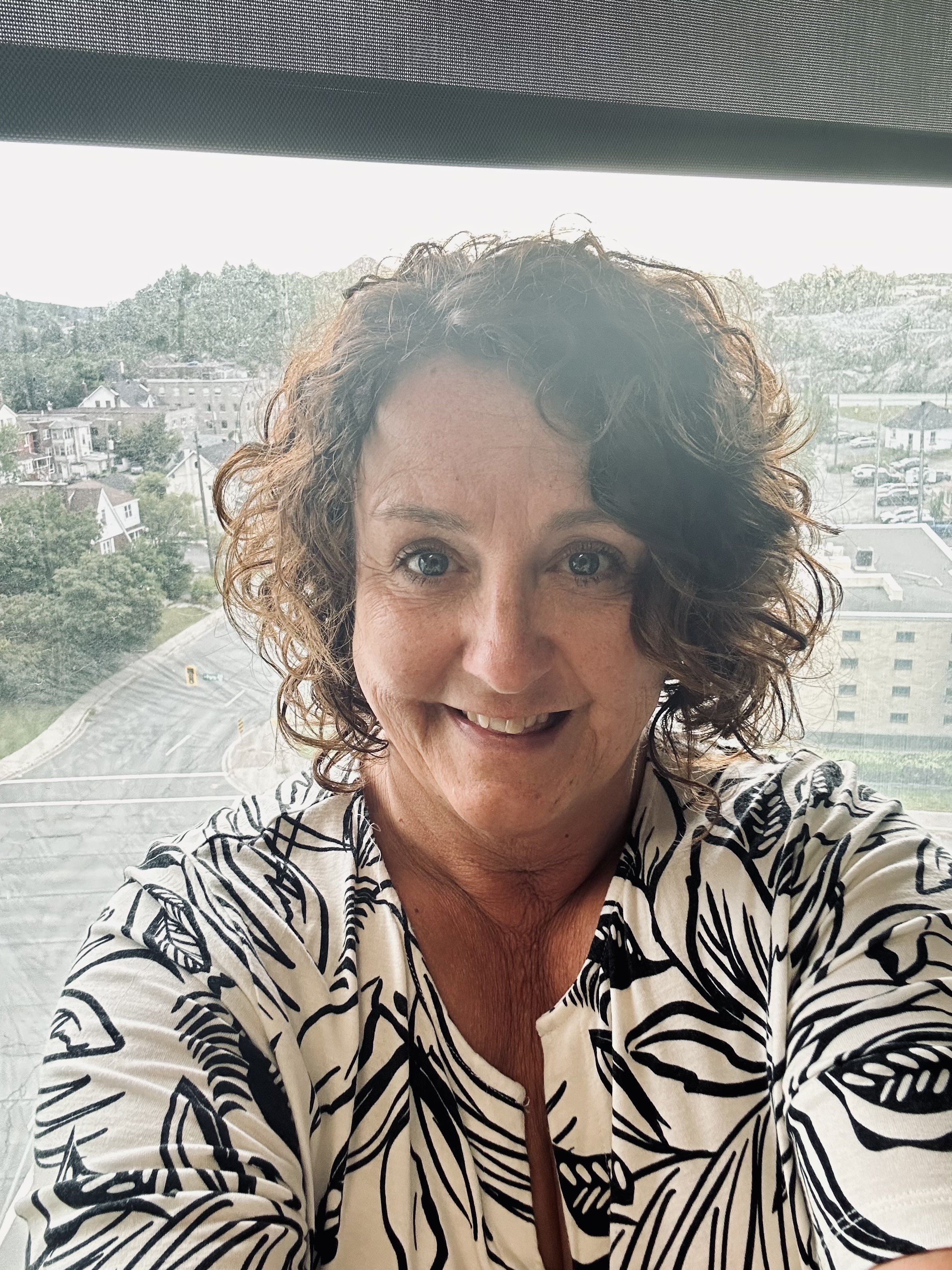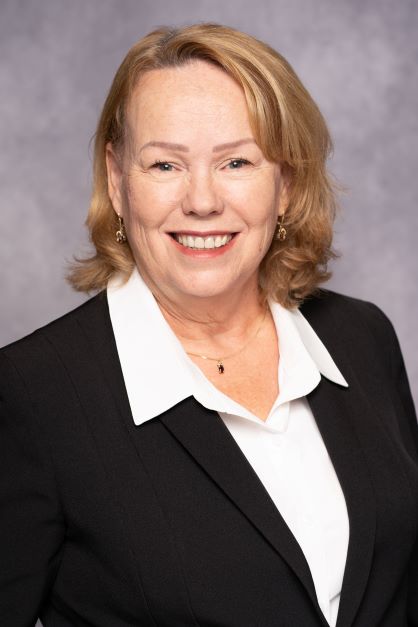2024 Award Recipients

Congratulations to all of our 2024 Award Recipients!
OMSSA is pleased to announce our slate of 2024 Award Recipients. This impressive group of individuals and teams will be recognized at our upcoming 2024 Policy Conference and 2025 Exchange Conference in Toronto.
OMSSA would also like to thank award nominators for submitting nominations of their colleagues for recognition, and our Awards Committee for their selection of our 2024 slate of award recipients. Learn more about the outstanding individuals and teams we will recognize below:
Champion of Human Services Award: Adrienne Jugley and Janine Mitchell
Patti Moore Human Services Integration Award: Gail Spencer
Lifetime Achievement Award: Katherine Chislett
Young Leader Award: Kendra Habing
Local Municipal Champion Awards:
- City of Brantford: Community Resource Navigation Pilot
- City of Windsor: Windsor-Essex Registered Early Childhood Educators Campaign (WERECE)
- County of Renfrew: Mesa - A Collaborative Approach to Compassionate Care
- Access to Integrated Care in Couchiching: A Partnership between the County of Simcoe Ontario Works and OSMH
- Northumberland County: Early Years Employment Initiative
- Region of Durham: Family Services Durham
- Region of Peel: Stability Supports Program
2025 Awards
Stay tuned for information about nominations for OMSSA's 2025 Awards. You can learn more about our awards program here on our website.Champion of Human Services
OMSSA's Champion of Human Services Award recognizes a champion who has displayed extraordinary leadership and made an exceptional contribution to human services. Our Champion of Human Services Award recipients will be recognized at our 2024 Policy Conference and 2025 Exchange Conference.Adrienne Jugley

Energetic and strategic leader, collaborative partner, and passionate about serving the most vulnerable are just a few ways to describe Adrienne and her nearly 35 year career in human services. Adrienne is a graduate from University of Toronto with a Master of Social Work, who has vast experience that spans across several sectors including health and community services in Niagara Region.
Adrienne’s early days were spent in the addictions sector, followed by several leadership roles in Public Health including Manger of Mental Health and Director of Clinical Services. Her final nine years of her career, Adrienne served as the Commissioner of Community Services where she was committed to serving the most vulnerable people in the Niagara community from infant to senior. In this role, Adrienne envisioned Niagara Region as a strong community where individuals are supported to maximize their potential, achieve their goals, and enhance their quality of life and social well-being. She truly believed in this philosophy and was a key contributor to numerous community initiatives and Regional developments.
Her unparalleled work ethic - first one to the office, last one to leave, her ability to always make time to connect with staff at all levels and knew everyone by name, and how she empowered staff to always want to do better for the community are just a few of her incredible gifts that make her a true human services champion.
Janine Mitchell

Janine Mitchell has worked in the human services sector for her entire 40 year career, starting off working in licensed child care and eventually making her way to a municipality managing Children’s Services, the delivery of Ontario Works Program and Social Services Emergency Management. Looking at past winners and the accomplishments they made, Janine will say that she is not entirely sure she deserves this recognition! Janine has been a recipient of the Maria Amsen Award and the Association for Early Childhood Educators Achievement Award, for her contributions to the Early Learning and Child Care Sector.
She has always been an advocate for, and actively engaged in, incorporating a culture of accessibility, equity, diversity, inclusion and belonging into the work space, and was a recipient of the Kawartha Lakes Accessibility Award. Always an advocate for people, Janine developed the first orientation and onboarding and staff recognition program for staff working in social services that was used to develop the program for the entire corporation. Janine is a ‘there is no box’ thinker and looks for possibilities to make things happen using an evidence based approach and research while developing and supporting creative and innovative solutions – Janine can often be heard saying find a way for me to say yes.
Patti Moore Human Services Integration Award
OMSSA's Patti Moore Human Services Integration Award recognizes an OMSSA member who has displayed extraordinary leadership and made an exceptional contribution to human services. Our Patti Moore Human Services Integration Award recipient will be recognized at our 2024 Policy Conference.Gail Spencer

Gail Spencer, Manager of Housing Stability and Homelessness for the City of Greater Sudbury demonstrates exceptional leadership qualities in integrating human services. Gail has worked with the City’s Social Services Division for over 30 years, starting at the frontline as a General welfare fieldworker and moving upward to the development and management of dynamic homelessness team. Over the past 16 years, Gail has spearheaded community and provincial initiatives, developing a roadmap for a responsive, integrated human service system for the unhoused population and programs aiming to end homelessness. Gail has established and supports committees such as the Reaching Home Community Advisory Board and Housing First Steering Committee to enhance and coordinate funding for direct client support, improve referral pathways, and reduce duplication for individuals experiencing homelessness, severe mental health issues, and addiction concerns.
Gail worked with federal, provincial and municipal partners to bring about significant changes in housing placements for the homeless population through the implementation of a Coordinated Access System. This involved integrating intake, monitoring, and reporting mechanisms for available housing and funding sources The previous system had a fragmented approach that made it difficult for individuals to access the services they needed. Gail's leadership helped consolidate program efforts and ensured that the client's needs were at the center of all planning and decision making.
While building strong, respectful relationships with community partners and other sectors has always been a priority for Gail, the increasing complexity of homelessness and the development of the Homelessness team over the past five years has amplified the importance of breaking down barriers and working together. Gail believes building collaborative partnerships is the key to successful programs aimed at ending chronic homelessness.
Lifetime Achievement Award
OMSSA's Lifetime Achievement Award recognizing the long-standing contribution of exceptional OMSSA members who have recently retired or who plan on retiring ahead of next year's OMSSA Exchange Conference.Katherine Chislett

Katherine’s distinguished career in municipal and regional services began in 1987 with Ontario's Ministry of Housing and Municipal Affairs, where her work on rent control, social housing, and planning Markham’s Cornell community set the foundation for decades of impactful leadership. With Ontario’s download of programs, in 1998 Katherine joined the newly amalgamated City of Toronto to help build its social housing program. In her role as principal planner, she led efforts to protect rental housing and tenant rights amidst sweeping policy changes.
With a shift to frontline housing services, Katherine became Toronto’s Director of Housing and Homelessness, creating and launching the Streets to Homes program (housing first), co-leading with St. Michael’s hospital Toronto's involvement in the Mental Health Commission of Canada's At Home/Chez Soi research project, developing the city's first Indigenous Homelessness Strategy, and delivering its first street count. Her work during this time not only expanded affordable housing but also fundamentally transformed service delivery for those facing homelessness.
In Niagara Region as Commissioner of Community Services, Katherine expanded her reach, leading human services in homelessness prevention, child services, employment support, and long-term care. Her legacy included Niagara’s first housing and homelessness plan and contributions to the Niagara Regional Housing Board.
From 2017 to 2024, Katherine served as Commissioner of Community and Health Services for York Region and as President of Housing York, Inc., overseeing a $1 billion budget, 3,000 staff, and more than 300 programs that support York Region’s residents. Under her leadership, York achieved numerous strategic and service plans, including the region’s first Community Safety and Well-Being Plan and the York Region Inclusion Charter, recognized by the United Nations. Katherine’s focus on integrated service management and her dedication to equity and inclusion have enriched the lives of over 1.2 million residents.
In retirement, Katherine continues to support community development, volunteering with the Prince Edward County Affordable Housing Corporation and as a management consultant current supporting planning for a new community. She is deeply grateful to the talented colleagues, mentors, and team members whose passion, dedication, and commitment to public service have inspired her journey and ensured the delivery of essential programs that support healthier, more hopeful lives for so many.
Young Leader Award
OMSSA's Young Leader Award recognizes an individual 30 years or younger who has been recognized as a leader, created change, and strengthened leadership in their community.Kendra Habing

Kendra Habing is a Decision Support Advisor for Halton Region with nearly a decade of experience in research, strategic planning, and community partnership building. She holds a Master of Public Health and leads the work of Halton’s Community Safety and Well-Being Plan, providing critical support to enhance program effectiveness and community outcomes. Kendra’s recent projects on CSWB include:
- Supporting the establishment of 15 Community Action Tables focusing on priority CSWB issues
- Evaluation of Halton’s CSWB Plan, including engagement with community partners and the development of key recommendations and an Action Plan
- Development of toolkits to build capacity of CSWB partners to engage in planning, governance, evaluation and more
- Selection of indicators to build out a CSWB Indicator Framework and creation of a Power BI dashboard to provide dynamic updates to the public
With a background as a Public Health Epidemiologist, Kendra is deeply committed to leveraging data as a transformative tool for addressing social and health issues. Her work emphasizes the social determinants of health, focusing on the factors that influence overall community well-being. Previously, she worked with the Department of Family Medicine at McMaster University, where her research centered on Community Paramedicine and strengthened her dedication to collaborative, community-focused initiatives.
Kendra’s expertise in social services management, strategic planning, and program evaluation has allowed her to drive impactful change and build resilient community partnerships. Known for her strong analytical abilities and adeptness in project management, Kendra has a proven track record in managing complex projects, aligning stakeholders, and ensuring program outcomes meet community needs. Her approach emphasizes collaboration, continuous improvement, and evidence-informed decision-making, which have contributed to successful partnerships and enhanced service delivery within the municipality. She actively contributes to public service networks within Halton, across Ontario, and nationwide, with a passionate commitment to advancing health and safety in the community.
Local Municipal Champion Awards
OMSSA's Local Municipal Champion Awards recognize the great work done in advancing excellence in human services integration and service system management by teams from CMSMs and DSSABs across the province. Teams may include CMSM and DSSAB staff in partnership with community organizations and/or initiatives where CMSM and DSSAB staff work together with their communities. Our Local Municipal Champion Award recipients will be recognized at our 2025 Exchange Conference.City of Brantford: Community Resource Navigation Pilot
Human services are comprised of overlapping and intersecting systems, resulting in significant impacts on people's lives. These intersections may create barriers for people seeking supports because of different eligibility criteria, application processes, and accountabilities. Integrated human services are predicated on person-centered service delivery design; this design means that delivery agents must assume the task of making connections between systems and not delegate this work to the people seeking support.
Brantford’s Community Resource Navigation (CRN) pilot is a service delivery approach focused on improving OW recipients’ overall well-being, decreasing time on assistance and/or avoiding the need to enter the social assistance system altogether through an integrated and person centered service delivery model. The pilot connects recipients with Service Navigators who provide supports tailored to individual needs that include City of Brantford services (OW benefits, childcare, housing), as well as community supports such as primary health care and Employment Ontario. A collaborative table has come together to learn about and problem solve system barriers that emerge in providing navigation supports; some of these outcomes have included sharing information, changing processes, joint planning and community-based service delivery.
In partnership with Wilfrid Laurier University, a formal evaluation will produce final results by the end of the year; however, to date, the navigation service delivery model has demonstrated promising results. To date, Community Resource Navigators have more frequent and more prolonged contact with recipients compared with Service Coordinators (OW Case Managers). Service Coordinators are responsible for administering Ontario Works while Community Resource Navigators are providing warm transfers, outreach, advocacy and connections to resources. This learning is promising as more frequent contact builds better rapport between staff and clients and across service delivery agents/systems. Significantly, feedback from clients has been positive. One participant said: "If it was not for the assistance of OW this would not have been possible. I give permission for you to show your boss, or whatever, what OW did for me. This is absolutely amazing and my self-confidence just came back."
City of Windsor: Windsor-Essex Registered Early Childhood Educators Campaign (WERECE)
The Windsor-Essex Registered Early Childhood Educators Campaign (WERECE), phonetically We Are ECEs, was created and is led by the City of Windsor’s Children’s Services Team as a recruitment and retention strategy. The campaign addresses the critical workforce shortages in the field of Early Childhood Education (ECE) through a coordinated, sustainable, and multi-faceted approach. Partnering with community organizations, child care centres, EarlyON Child and Family Centres, St. Clair College, Collège Boréal, and local school boards, intentionally building upon strategic partnerships across Windsor-Essex. The WERECE campaign is focused on empowering, engaging and enhancing the early childhood educator (ECE) workforce across Windsor-Essex. Through tuition support, collaborative classroom models, and mentorship to name a few, it has ensured a steady stream of qualified ECE graduates are supported and better prepared as they enter the workforce. The campaign’s wide-reaching bilingual advertising initiative, including digital, radio, and community engagement, has raised public awareness and increased interest in the profession. The campaign serves to highlight that registered ECEs are qualified, creative, dedicated, and in demand. Additionally, as a result of the campaign, St. Clair College has responded to local demands by increasing ECE program enrollment and creating a part-time schooling option. The WERECE Campaign is a model of human services integration, strengthening the quality and sustainability of ECE for children and families across Windsor-Essex.
County of Renfrew: Mesa - A Collaborative Approach to Compassionate Care
Mesa was designed as a coordinated and integrated approach to address the intersections of the mental health and addiction, housing and homelessness crises. It is an innovative and evidence-informed collaborative model that focuses on compassionate, trauma-informed care and local needs. Craig Kelley, Chief Administrative Officer for the County of Renfrew, recognized a need for members of his Senior Leadership Team to change their practices, break down silos, integrate service delivery, and work collaboratively. Without this leadership, things would have remained status quo, and Mesa would not have evolved into what it is today. This inter-departmental municipal approach aligns Emergency Services, Community Services and Development and Property resources with community partners’ expertise and programs.
The Mesa team works collaboratively to coordinate services and navigate a pathway for vulnerable community members to receive the right support and resources at the right time and in the right place. The Mesa user experience is being tracked and measured with a priority on real-time, person-specific data in a way that respects privacy. We coordinate data, case management and shared consent, building a structure and pathway for Mesa to be woven into our municipal and partner system structures. Client confidentiality is a priority and balanced with the need for data sharing to support person-centred, coordinated care. In the moment of crisis, Mesa team members respond to a person’s immediate needs, fill the gap and then work towards building a system that provides a seamless, wrap-around approach to caring for people in an intertwined crisis of addiction, mental health and housing. The flow, timeliness and tracking of support is critical to a person’s success.
The impact that Mesa is having on our most vulnerable populations and our structural systems is profound. It diverts calls from high-cost emergency department trips, saving lives and providing appropriate, compassionate care in the community. Mesa demonstrates success through diversions, avoiding hospitalization, providing appropriate and local mental health and addictions interventions and prioritizing housing. Through the collaborative approach there has already been a notable increase in coordination of care. The Mesa team has built trust and connection with our region’s highest risk population. Mesa works collaboratively with clients and multi sector service partners, including health, social, private sector developers, plural sector, not for profit, financial, legal and community expertise, to coordinate immediate access to health, social, financial and housing needs. Together, we determine what is possible.
Through Mesa, the County of Renfrew currently has direct partnerships with the following organizations:
- Pembroke Regional Hospital, as represented by the Mental Health Services of Renfrew County (MHSRC)
- MacKay Manor as represented by Community Withdrawal Management Services of Renfrew County (CWMS)
- Renfrew Victoria Hospital as represented by Addiction Treatment Services (ATS)
Access to Integrated Care in Couchiching: A Partnership between the County of Simcoe Ontario Works and OSMH
The County of Simcoe Ontario Works team partnered with Orillia Soldiers' Memorial Hospital (OSMH) to develop a unique model of care for unattached patients (those without primary care provider), addressing a critical gap in healthcare access affecting over 22% of the community’s population, with a particular impact on vulnerable groups. Recognizing the diverse and complex needs of unattached individuals, including those experiencing homelessness, children, and families without primary care, the County supported an innovative, integrated model that connected these individuals to vital healthcare services through municipal and healthcare partnerships. This initiative provided chronic disease management, primary care, and cancer screening; essential services that were previously inaccessible in a community with no walk-in clinics and limited alternatives beyond OSMH’s Emergency Department. The model’s success garnered provincial recognition as a pioneering approach to unattached care in Ontario, which ultimately secured sustainable funding for the Couchiching Ontario Health Team (OHT) to expand this model and enhance healthcare access for the broader community. The strong leadership and collaboration of the County of Simcoe Ontario Works team were instrumental in maintaining a social support lens central to the County of Simcoe's vision, reinforcing the importance of municipal partnership in healthcare innovation. Their work not only highlighted the effective partnership between the Orillia Soldiers Memorial Hospital, the Couchiching OHT, and Ontario Works but also demonstrated how Ontario Health Teams can provide integrated, accessible, and community-centered healthcare solutions that truly transform care delivery locally.
- Ontario Connecting More People to Primary Care Teams in Simcoe North | Jill Dunlop, MPP
- https://x.com/CouchichingOHT/status/1669852675393855488
Northumberland County: Early Years Employment Initiative
The Early Years Employment Initiative (EYEI) is a collaboration between the Early Years (EY) and Ontario Works (OW) Divisions at Northumberland County that creates opportunities for OW clients and students to start/re-start careers in the Early Years sector. The six-week duration of the EYEI program is divided into two-weeks of in-class learning followed by four-weeks of field experience. The in-class sessions provide participants with opportunities to acquire certificates relevant to employment both within and outside of the Early Years sector. These include WHMIS, Safe Food Handlers, First-Aid/CPR, resume writing skills, Occupational Health and Safety training, Foundations to Play (How Does Learning Happen), and Self-Regulation training (Merhit Centre). The four-weeks of field experience are offered in local child care centres where participants offer support roles for child care staff. These placement opportunities allow participants to observe the many different employment pathways in the child care sector, such as Dietary Staff, Early Childhood Assistants, and Early Childhood Educators.
The EYEI program fosters participation by offering above minimum wage pay across all six-weeks and provides child care opportunities for participants with school-aged children. Offering the EYEI program in the summer months allows this flexibility for child care arrangements.
The EYEI program received critical partnerships from Fleming College, Watton Employment Services, Northumberland YMCA, and Five Counties Children’s Centre. The program supports Northumberland’s Early Years Workforce Strategy for recruitment and retention. Over the last three years of running the EYEI Program, 50% of participants have accepted employment opportunities post-placement or chose to move on toward post-secondary education in the Early Years Sector or Child Development.
Region of Durham: Family Services Durham
Family Services Durham (FSD) has provided services to foster mental health and well-being for almost fifty years. FSD’s Community Counselling program delivers professional counselling and psychotherapy to individuals, couples, and families. The Adult Protective Services (APS) team provides case management and advocacy to adults with developmental disabilities. FSD has improved access to services by building innovative collaborations that streamline access to mental health services and resources for basic needs, and enhance coordination among service providers. FSD partners with the Health Department to deliver the Primary Care Outreach Program (PCOP), a mobile unit providing immediate access to medical, mental health, and addiction supports to those who are unhoused. This population is also served by FSD’s Mental Health Outreach Program (MHOP), which offers community-based counselling and service navigation. These programs integrate APS staff to support individuals with developmental disabilities. By meeting clients where they are, these outreach teams reduce barriers and engaged in over 5,000 interactions in 2023.
As a partner with Safety Network Durham (SND), FSD provides immediate onsite assessment, support, and connection to ongoing counselling to survivors of gender-based violence. FSD is also a partner at Durham Community Walk-In Clinic (DCWIC), offering counselling to families to help address the gap in specialized and affordable children’s mental health services. FSD provides no-cost counselling to social assistance recipients, and in 2023 supported over 2,000 Ontario Works clients to reduce barriers to well-being and employment. In its newest collaboration, FSD works with Police Services to deliver the Older Adult Safety Advisor (OASA) program which offers support, advocacy, and service navigation for older adults at risk. This program was met with high demand, and in the first half of 2024 OASA staff engaged in over 1,700 interactions. FSD has also expanded access to counselling services in traditionally underserved rural areas through collaborations with North Durham organizations. In total, over 6,600 clients were assisted through various FSD programs in 2023. FSD also enhances service delivery in the community by offering clinical support and training to staff at other social services divisions and community organizations, strengthening their ability to provide effective services.
Region of Peel: Stability Supports Program
The demand for mental health and addiction services and digital access has surged, driven by a growing awareness of these issues and an increasing need for support. However, funding shortfalls and limited agency capacity has hindered timely access to these essential services. In response to the identified need in Peel, the Income and Social Supports team collaborated with the Social Development, Policy, and Planning team to partner with over 30 community agencies. Together, we co-designed and launched two impactful program funds: the Wellness Response and Assistance Program (WRAP) and Digital Literacy Programs.
These programs aim to enhance community capacity and alleviate long waitlists for services. Services are accessible in various formats, offered in different languages, target different age groups and are culturally focused. Over 12,000 Peel residents have accessed supports through WRAP, including counselling, harm reduction, and health education, while more than 900 residents have benefitted from Digital Literacy programming, gaining skills in computer use, internet safety, online searching, and communication. This collaborative approach not only addresses immediate needs but also empowers the community through enhanced access to vital resources.